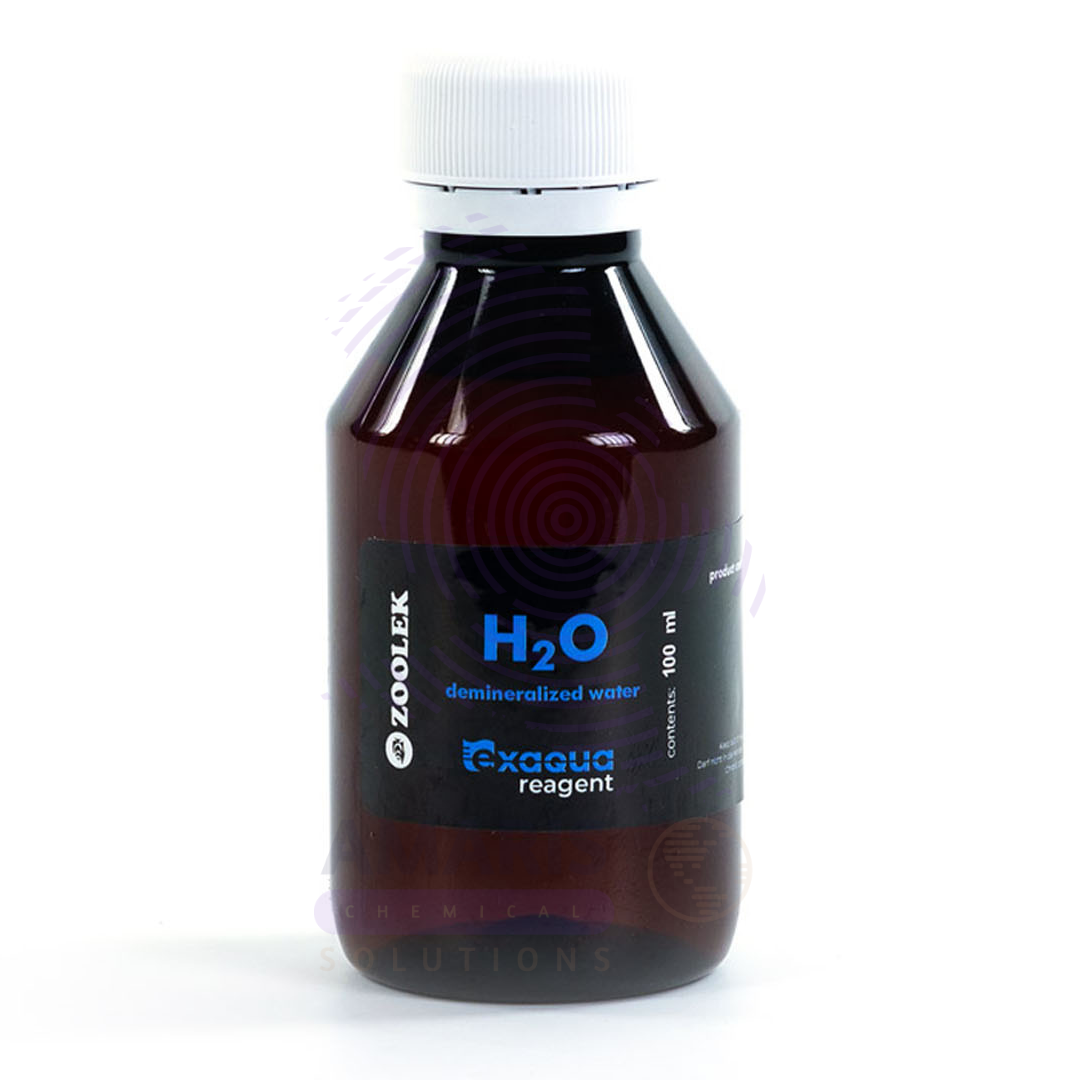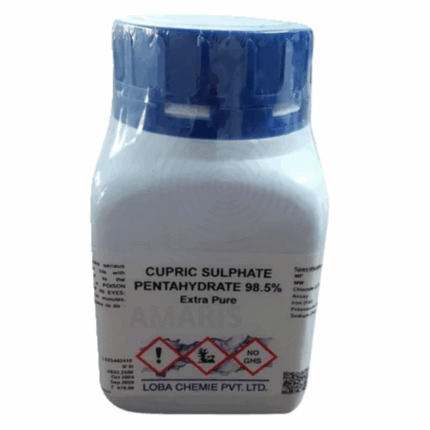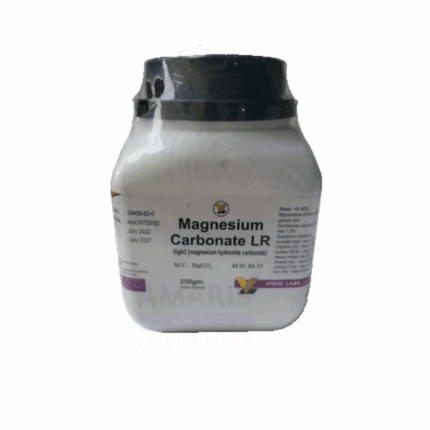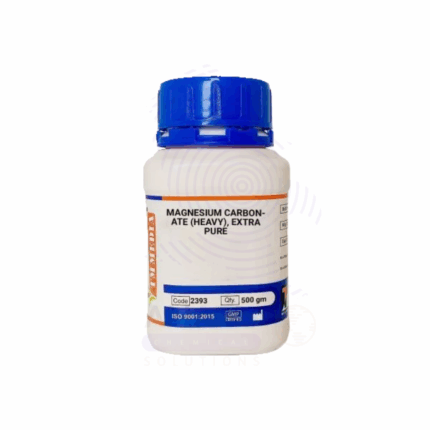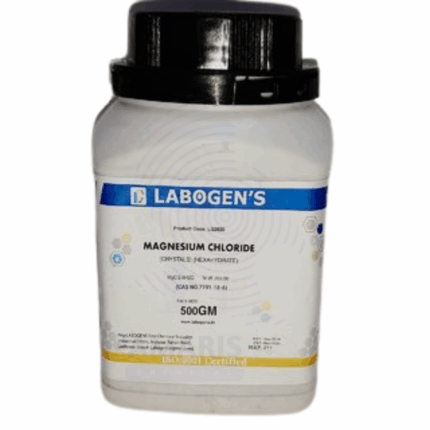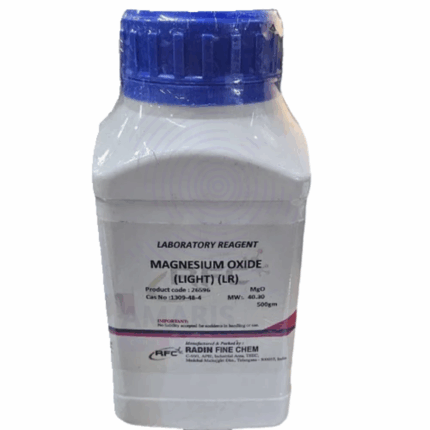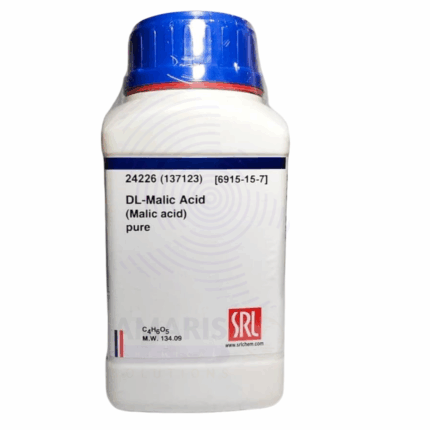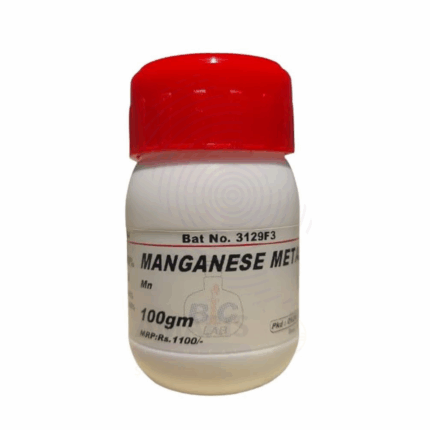“Cupric Oxide Extra Pure” has been added to your cart. View cart
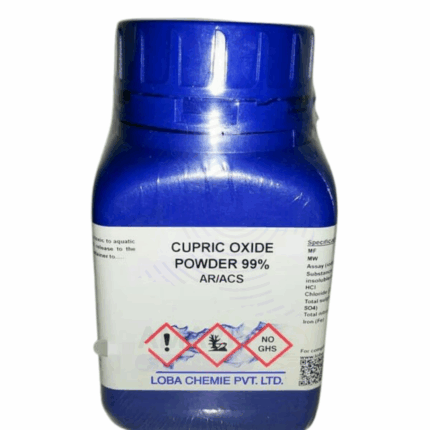
Cupric Oxide Extra Pure
$ 22.30 Original price was: $ 22.30.$ 22.10Current price is: $ 22.10.
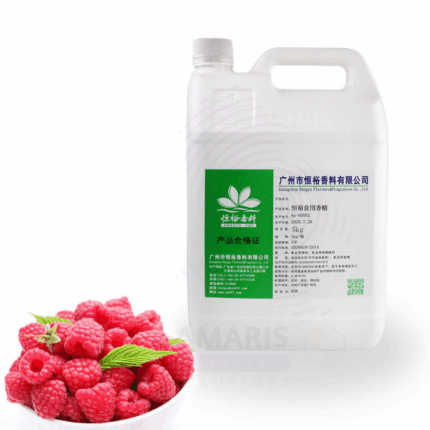
Raspberry Liquid Flavour Food Grade
$ 39.00 Original price was: $ 39.00.$ 38.67Current price is: $ 38.67.
Deionized Water Extra Pure
$ 6.70 Original price was: $ 6.70.$ 6.59Current price is: $ 6.59.
Whatsapp Order
Deionized Water Extra Pure is ultra-purified water that has had all mineral ions, such as sodium, calcium, iron, chloride, and sulfate, removed through ion-exchange processes. It is widely used in laboratories as a solvent, reagent diluent, and cleaning agent for sensitive instruments, ensuring no interference from dissolved ions in chemical analyses or reactions. This extra pure grade guarantees extremely low conductivity and minimal contaminants, making it ideal for analytical procedures, biological experiments, and preparation of standard solutions. It should be stored in clean, non-leaching containers to maintain its purity and prevent recontamination.
Description
Table of Contents
Toggle
Deionized Water Extra Pure
Primary Uses
- Solvent for Sensitive Reactions
- Ideal for reactions that require minimal ionic contamination, especially those involving precipitation, titration, or synthesis.
- Solution & Reagent Preparation
- Used to prepare accurate concentrations of analytical reagents, standards, and buffers due to its high purity and predictable conductivity.
- Glassware Rinsing & Cleaning
- Final rinse water in analytical labs to prevent ion residues from tap water that could interfere with measurements.
- Instrument Feed Water
- Essential in AAS, HPLC, GC-MS, ICP, and spectrophotometers to avoid signal interference and clogging due to dissolved salts.
Secondary Uses
- Microbiology & Cell Culture Media
- Used in combination with sterile techniques to avoid contamination with metal ions or chlorine that affect microbial growth.
- Battery Electrolyte & Calibration
- Acts as a base for electrolyte preparation or calibration of pH meters and conductivity probes.
- Photographic & Optical Work
- Prevents mineral deposits on lenses, films, or sensitive optical instruments.
Additional information
| PACK SIZE |
20ltrs |
|---|
KEY PRODUCT FEATURES
1. Basic Identification Attributes
- Chemical Name: Deionized Water
- Common Name: DI Water / Demineralized Water
- CAS Number: 7732-18-5
- Chemical Formula: H₂O
- Grade: Extra Pure (Laboratory Grade, free from ionic contaminants)
2. Physical & Chemical Properties
- Appearance: Clear, colorless, odorless liquid
- Solubility: Completely miscible with most solvents
- pH: Typically between 5.5 – 7.5 (due to CO₂ absorption)
- Conductivity: <1 µS/cm (ultrapure), depending on production quality
- Boiling Point: 100 °C
- Freezing Point: 0 °C
- Density: 1.000 g/cm³ at 4 °C
3. Safety & Hazard Attributes
- GHS Classification: Not classified as hazardous
- NFPA Ratings:
- Health: 0
- Flammability: 0
- Reactivity: 0
- First Aid Measures:
- Inhalation / Skin / Eye / Ingestion: No adverse effects under normal conditions
4. Storage & Handling Attributes
- Storage Conditions:
- Store in tightly sealed containers
- Avoid contamination—use clean, inert, or sterilized containers
- Best stored in glass or high-grade plastic containers (e.g., HDPE, PP, PTFE)
- Handling Advice:
- Avoid contact with reactive chemicals that could leach into water
- Prevent exposure to air if CO₂-sensitive applications require ultra-low conductivity
5. Regulatory & Compliance Attributes
- EINECS Number: 231-791-2
- UN Number: Not regulated
- REACH Status: Exempt (naturally occurring substance)
6. Applications in Laboratory
- Primary Use:
- Essential solvent and diluent in most analytical and preparative procedures
- Other Uses:
- Preparation of standards, reagents, buffers, and media
- Rinsing and cleaning of glassware to avoid contamination
- Feedwater for laboratory instruments (HPLC, AAS, ICP-MS, etc.)
- Electrochemistry and pH measurements
- Molecular biology and microbiology applications
- Cooling and autoclaving processes
SAFETY HANDLING PRECAUTIONS
SAFETY PRECAUTIONS
- PPE: Typically minimal, but for sensitive labs:
- Gloves (to prevent contamination)
- Clean lab attire
- Use clean, sterile containers to avoid recontamination
- Handling Notes:
- Use only with dedicated containers to avoid ionic leaching or contamination
- Do not expose to air for extended periods—can absorb CO₂, affecting pH
- Storage Conditions:
- Store in high-density polyethylene (HDPE) or borosilicate glass
- Keep tightly sealed in a clean, dry environment
- Protect from dust and environmental contaminants
FIRST AID MEASURES
- Generally non-toxic and safe
- In case of accidental contamination with lab substances, treat based on the contaminant involved
FIREFIGHTING MEASURES
- Flammability: Non-flammable
- Fire hazard: None
Related products
Cupric Sulphate Pentahydrate Extra Pure
Cupric Sulphate Pentahydrate Extra Pure is a vibrant blue crystalline compound widely used in laboratories for its high solubility and consistent copper ion content. It is essential in analytical chemistry for Fehling's and Benedict’s solutions, in electrochemistry for plating and battery experiments, and as a biological nutrient in microbiological media. The pentahydrate form offers ease of handling and precise formulation in aqueous solutions. This extra pure grade ensures exceptional purity, making it suitable for teaching labs, research applications, and controlled experimental procedures. Store in a sealed container away from heat and moisture to maintain its crystalline integrity.
Magnesium Carbonate Extra Pure
Magnesium Carbonate Extra Pure is a high-purity, white powder valued for its excellent absorbent and antacid qualities. It is commonly used in pharmaceuticals as a magnesium supplement or antacid, and in food applications as a drying agent, anti-caking agent, or acidity regulator. In the cosmetics and personal care industry, it functions as a filler and a bulking agent in powders and creams. It is also employed in laboratory settings for analytical applications due to its consistent chemical composition. Its high absorbency and stability make it useful in rubber, ceramics, and sports grip products as well.
Magnesium Carbonate Heavy Extra Pure
Magnesium Carbonate Heavy Extra Pure is a denser, high-purity grade of magnesium carbonate known for its exceptional stability, low solubility in water, and high absorbent capacity. It is widely used in pharmaceutical formulations as an antacid and magnesium supplement, and in food processing as an anti-caking agent and food additive. Its heavier bulk density makes it ideal for industrial uses such as in rubber and plastic manufacturing, where it serves as a reinforcing filler. In cosmetics, it contributes to moisture control in powders and skin care products. It is also valued in laboratories for analytical applications where precision and consistency are essential.
Magnesium Chloride Extra Pure
Magnesium Chloride Extra Pure is a highly soluble, refined chemical compound commonly used for its excellent hygroscopic and electrolyte properties. In laboratory and analytical settings, it is valued for preparing magnesium-based solutions and as a reagent in various chemical reactions. In pharmaceuticals, it serves as a magnesium supplement, aiding in nerve function and muscle health. It is also used in cosmetics and personal care products for its skin-conditioning benefits. Additionally, it finds applications in textile processing, dust control, and de-icing formulations, where its purity ensures minimal impurities in sensitive applications.
Magnesium Oxide Light Powder Extra Pure
Magnesium Oxide Light Powder Extra Pure is a fine, white, odorless powder with a lower bulk density compared to the heavy grade, offering high surface area and excellent reactivity. It is widely used in analytical laboratories, pharmaceuticals, and cosmetics due to its purity and gentle chemical behavior. In pharmaceutical formulations, it acts as an antacid and magnesium supplement, while in cosmetics, it is used for its absorbent and pH-adjusting properties. Its light, fluffy texture also makes it ideal for use in rubber, plastics, and coatings as a filler, stabilizer, or neutralizing agent. The extra pure grade ensures consistent quality for precise and sensitive applications.
Malic Acid Extra Pure
Malic Acid Extra Pure is a high-grade, naturally occurring dicarboxylic acid known for its sharp, tart flavor and versatility in both laboratory and industrial settings. It is commonly found in fruits such as apples and is widely used as an acidulant in food and beverage formulations, where it enhances flavor, preserves freshness, and improves pH stability. In laboratory applications, Malic Acid is employed in biochemical research, particularly in studies involving the citric acid cycle, due to its role as an intermediate metabolite. Its excellent solubility in water and mild acidity also make it suitable for cosmetic formulations and pharmaceutical preparations. The extra pure grade ensures high analytical accuracy and consistent quality across applications requiring strict purity standards.
Manganese Metal Powder Extra Pure
Manganese Metal Powder Extra Pure is a fine, silvery-gray metallic powder known for its high reactivity and essential role in various chemical and metallurgical applications. In the laboratory, it is frequently used in redox reactions, alloy synthesis, and as a reagent for preparing manganese compounds. Its high surface area makes it particularly effective in catalysis and experimental procedures requiring fast reactivity. Industrially, manganese metal powder is integral to producing specialty steels and alloys, where it improves hardness, strength, and wear resistance. Its exceptional purity ensures consistent performance in research, metal refining, and advanced materials development.
Manganous Dihydrogen Phosphate Extra Pure
Manganous Dihydrogen Phosphate Extra Pure is a high-purity, white to pale pink crystalline compound composed of manganese and phosphate ions. It is primarily used in analytical chemistry, research laboratories, and specialized industrial processes where a precise and reliable manganese source is required. This compound is valued for its solubility in water and its role as a reagent in studies involving nutrient uptake, coordination chemistry, and phosphate-related reactions. Additionally, it finds niche applications in fertilizers and micronutrient formulations, particularly in controlled agricultural studies. Its extra pure grade ensures minimal contamination, making it suitable for sensitive experiments and formulations.


 Preservatives(food)
Preservatives(food) Flavor Enhancers
Flavor Enhancers Acidulants
Acidulants Sweeteners
Sweeteners Antioxidants
Antioxidants Colorants(food)
Colorants(food) Nutraceutical Ingredients (food)
Nutraceutical Ingredients (food) Nutrient Supplements
Nutrient Supplements Emulsifiers
Emulsifiers
 Collectors
Collectors Dust Suppressants
Dust Suppressants Explosives and Blasting Agents
Explosives and Blasting Agents Flocculants and Coagulants
Flocculants and Coagulants Frothers
Frothers Leaching Agents
Leaching Agents pH Modifiers
pH Modifiers Precious Metal Extraction Agents
Precious Metal Extraction Agents
 Antioxidants(plastic)
Antioxidants(plastic) Colorants (Pigments, Dyes)
Colorants (Pigments, Dyes) Fillers and Reinforcements
Fillers and Reinforcements Flame Retardants
Flame Retardants Monomers
Monomers Plasticizers
Plasticizers Polymerization Initiators
Polymerization Initiators Stabilizers (UV, Heat)
Stabilizers (UV, Heat)
 Antifoaming Agents
Antifoaming Agents Chelating Agents
Chelating Agents Coagulants and Flocculants
Coagulants and Flocculants Corrosion Inhibitors
Corrosion Inhibitors Disinfectants and Biocides
Disinfectants and Biocides Oxidizing Agents
Oxidizing Agents pH Adjusters
pH Adjusters Scale Inhibitors( water)
Scale Inhibitors( water)
 Antioxidants(cosmetic)
Antioxidants(cosmetic) Emollients
Emollients Fragrances and Essential Oils
Fragrances and Essential Oils Humectants
Humectants Preservatives
Preservatives Surfactants(cosmetic)
Surfactants(cosmetic) Thickeners
Thickeners UV Filters
UV Filters
 Fertilizers
Fertilizers Soil Conditioners
Soil Conditioners Plant Growth Regulators
Plant Growth Regulators Animal Feed Additives
Animal Feed Additives Biostimulants
Biostimulants Pesticides (Herbicides, Insecticides, Fungicides)
Pesticides (Herbicides, Insecticides, Fungicides)
 Active Pharmaceutical Ingredients (APIs)
Active Pharmaceutical Ingredients (APIs) Excipients
Excipients Solvents(pharmaceutical)
Solvents(pharmaceutical) Antibiotics
Antibiotics Antiseptics and Disinfectants
Antiseptics and Disinfectants Vaccine Adjuvants
Vaccine Adjuvants Nutraceutical Ingredients (pharmaceutical)
Nutraceutical Ingredients (pharmaceutical) Analgesics & Antipyretics
Analgesics & Antipyretics
 Analytical Reagents
Analytical Reagents Solvents(lab)
Solvents(lab) Chromatography Chemicals
Chromatography Chemicals Spectroscopy Reagents
Spectroscopy Reagents microbiology-and-cell-culture-reagents
microbiology-and-cell-culture-reagents Molecular Biology Reagents
Molecular Biology Reagents Biochemical Reagents
Biochemical Reagents Inorganic and Organic Standards
Inorganic and Organic Standards Laboratory Safety Chemicals
Laboratory Safety Chemicals Specialty Laboratory Chemicals(Special Laboratory Equipment)
Specialty Laboratory Chemicals(Special Laboratory Equipment)
 Demulsifiers
Demulsifiers Hydraulic Fracturing Fluids
Hydraulic Fracturing Fluids Scale Inhibitors(oil)
Scale Inhibitors(oil) Surfactants(oil)
Surfactants(oil) Drilling Fluids
Drilling Fluids
 Dyes and Pigments
Dyes and Pigments Bleaching Agents
Bleaching Agents Softening Agents
Softening Agents Finishing Agents
Finishing Agents Antistatic Agents
Antistatic Agents
 Admixtures
Admixtures Waterproofing Agents
Waterproofing Agents Sealants and Adhesives
Sealants and Adhesives Curing Compounds
Curing Compounds Concrete Repair Chemicals
Concrete Repair Chemicals Anti-Corrosion Coatings
Anti-Corrosion Coatings
 Surfactants(cleaning)
Surfactants(cleaning) Builders
Builders Enzymes
Enzymes Solvents (Cleaning)
Solvents (Cleaning) Fragrances
Fragrances
 Electronic Chemicals
Electronic Chemicals Catalysts
Catalysts Lubricants
Lubricants Photographic Chemicals
Photographic Chemicals Refrigerants
Refrigerants Automotive chemicals
Automotive chemicals Pyrotechnic Chemicals
Pyrotechnic Chemicals
 Biodegradable Surfactants
Biodegradable Surfactants Bio-based Solvents
Bio-based Solvents Renewable Polymers
Renewable Polymers Carbon Capture Chemicals
Carbon Capture Chemicals Wastewater Treatment Chemicals
Wastewater Treatment Chemicals
 Pigments
Pigments Solvents(paint)
Solvents(paint) Specialty Coatings
Specialty Coatings Binders/Resins
Binders/Resins Additives
Additives Driers
Driers Anti-Corrosion Agents
Anti-Corrosion Agents Functional Coatings
Functional Coatings Application-Specific Coatings
Application-Specific Coatings
 Fresh Herbs
Fresh Herbs Ground Spices
Ground Spices Whole Spices
Whole Spices Spice Blends
Spice Blends Dried Herbs
Dried Herbs
 Leavening Agents
Leavening Agents Dough Conditioners
Dough Conditioners Flour Treatments
Flour Treatments Fat Replacers
Fat Replacers Decoratives
Decoratives Preservatives(baking)
Preservatives(baking)
 Plasticizers & Softeners
Plasticizers & Softeners Reinforcing Agents
Reinforcing Agents Adhesion Promoters
Adhesion Promoters Vulcanizing Agents
Vulcanizing Agents Antidegradants
Antidegradants Blowing Agents
Blowing Agents Fillers & Extenders
Fillers & Extenders Accelerators & Retarders
Accelerators & Retarders